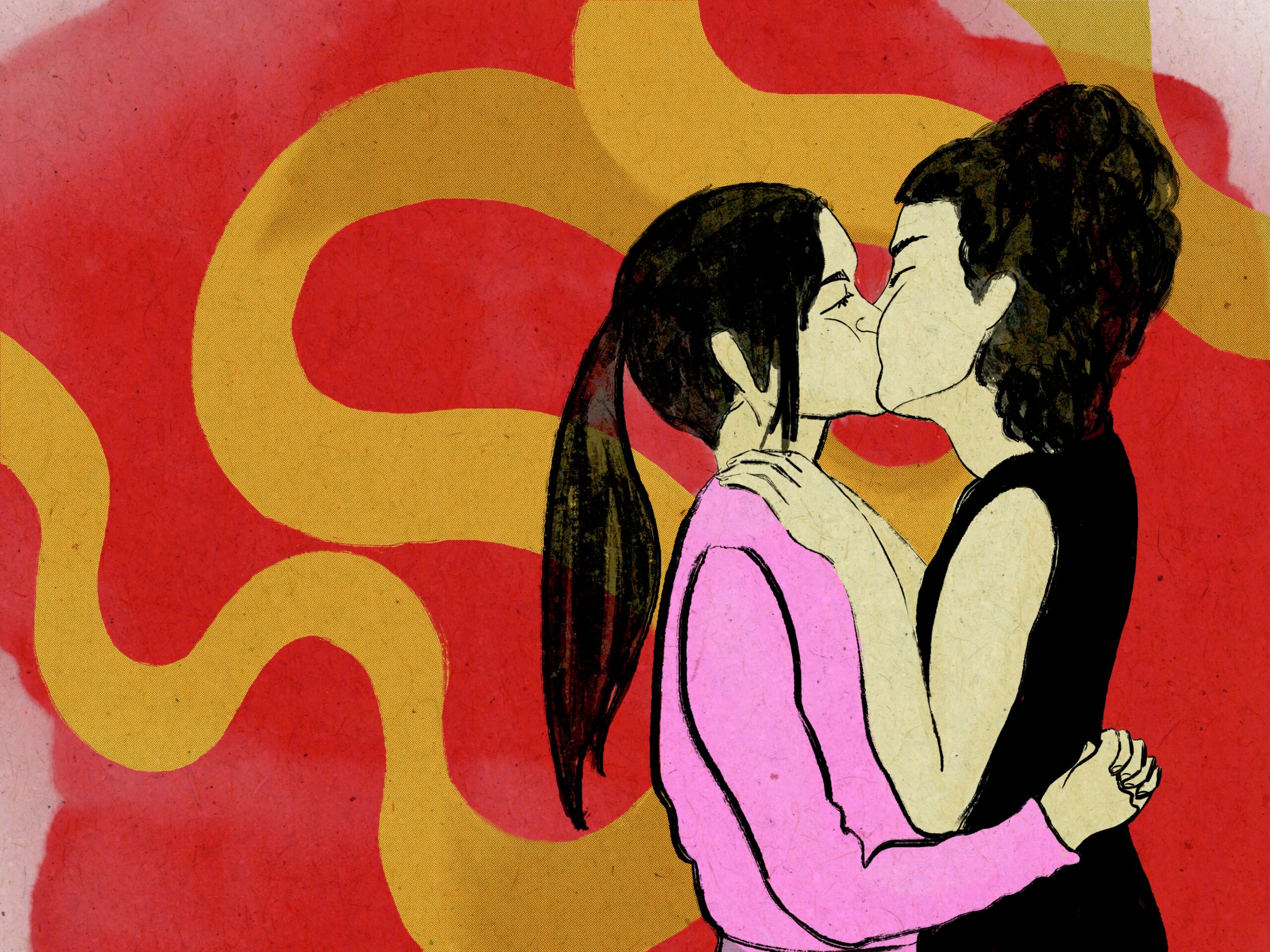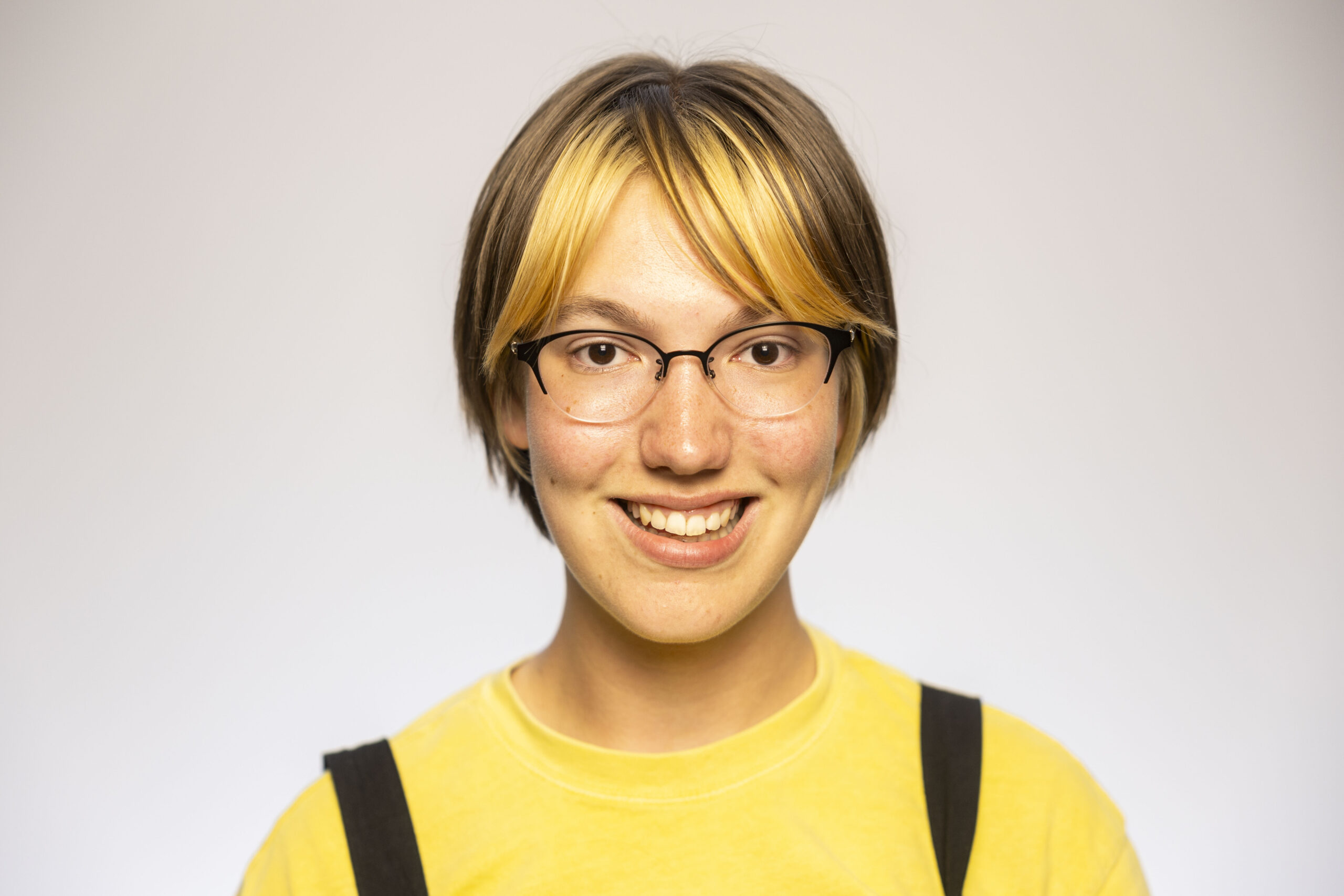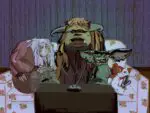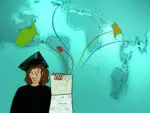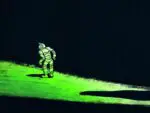Written and Directed by Alice Wu, the 2004 queer dramedy “Saving Face” interweaves language, sexuality, and Chinese-American tradition to tell a nuanced romance and coming out narrative that retains its uniqueness 20 years following its release. This article contains spoilers for the film.
In the early 2000s, Alice Wu quit her software design job at Microsoft to pen a hilariously heartwarming romantic comedy about a mother and daughter navigating new circumstances. The 2004 film “Saving Face”, Wu’s debut as both writer and director, is strong in both storytelling and character dynamics and retains a unique perspective even 20 years after its release. The film follows Wil (Michelle Krusiec) and Wil’s mother Hwei-Lan Gao (Joan Chen) as they suddenly move in together when Gao is kicked out of her parents’ home because of an out-of-wedlock pregnancy. Gao refuses to reveal the father’s identity, leaving Wil to set her up on a series of dates in hopes of marrying her off before the baby comes.
There is humor to be found in the juxtaposition of both mother and daughter setting each other up on dates with eligible Chinese-American men. The joke for Gao is the attempts of both mother and daughter to find the right time to tell an eligible man she’s pregnant; but for Wil, it’s sabotaging each attempt of her mother’s because she’s a lesbian. While most might expectthe main hurdle of the film would be Wil getting her mother to acknowledge that she is gay, Wu subverts this expectation focusing instead on the obstacle of coming out to the larger Chinese-American community Gao, Wil, and Wil’s girlfriend Vivian (Lynn Chen) reside in.
Throughout “Saving Face”, Wu intermixes Mandarin and English to create authentic dialogue between her characters. In one scene, Wil and Vivian are having dinner with Gao where the dialogue starts in Mandarin.
While Gao is initially interested in the conversation after Vivian talks about how she started as a ballet dancer, they are visibly disappointed when Vivian says how she has strayed from the traditional art form in favor of something more “expressive.”
As Vivian starts describing her career as a modern dancer, the fluency breaks down and Vivian starts using English phrases. The hodgepodge of language gives the characters a shared starting point but indicates how Vivian and Wil have strayed from a tradition Gao is still clinging to. Wil and Vivian can understand Mandarin but primarily use English, while the opposite is true for Gao and other members of their community..
While language is fundamental in the storytelling, the cultural elements baked into the story’s foundation strengthen it and add further nuance. The story’s catalyst – Gao moving into Wil’s apartment when her parents kick her out – can be attributed to the taboo in Chinese culture of out-of-wedlock pregnancies, along with the emphasis on caring for your elders. Wil holds a job expected of a model minority – she’s a doctor – and is quick to admit she’s afraid of the “karmic hell I’d have to pay as a Chinese daughter who didn’t take in her own mom.”
The relationship between Wil and Vivian explores the nuances of a person’s comfort with their sexuality. Wil participates in intimacy with Vivian when alone in Vivian’s apartment but is held back from kissing her in public spaces given her internalization of the cultural taboo she grew up with. While another movie may find Wil completely disregarding the opinions of her community, Wu continues to show how her upbringing and surroundings have affected her, even when she decides to prioritize her relationship with Vivian. The last scene of the movie shows Wil and Vivian dancing at Planet China – a restaurant frequented by their community for cultural dances – where she’s distracted by community members leaving out of disgust in response to her and Vivian’s dance.
Wu manages to create a setting realistic in its homophobia while still allowing a happy ending for the characters. While Gaodisregards Wil’s sexuality for the majority of the movie, she comes around at the end and is the reason Wil and Vivian are brought together for the last scene. Gao may not say the word “lesbian,” but it’s clear that she loves her daughter and wants her to be happy in the same way Gao has found happiness with the father of the baby.
While not lesbian in nature, Gao also experiences a love story that is queer in how it goes against the norms of the expected relationships in her community and grants her greater freedom. Gao finds freedom both in that she’s not entering into marriage with the father and in choosing to live alone going forward. Gao admits to Wil that she’s never really dated before, pleasantly surprised with the new experience their unique situation has brought her. It’s revealed at the film’s end that the father of her baby is a much younger man, another taboo for their Chinese-American community. Gao confides to Wil about her uncertainty about the man’s devotion to her given their age gap. Wu once again juxtaposes Gao and Wil’s stories in how Gao needed a public declaration of love from the father the same way Vivian needed one from Wil. Once the declaration is made at Gao’s wedding, Gao pursues the relationship, along with the newfound freedom of having her own place.
The nuances afforded by Wu’s writing make “Saving Face” a movie that one can come back to over and over again. While “Saving Face” is beloved for its depiction of lesbian relationships existing in the Chinese-American community, one cannot help but also root for Gao as she figures out what she wants amidst unique circumstances. The language further entrenches the story in its cultural context but at no point is the story inaccessible to those from a different cultural background. Moreover, all these elements culminate in making a great film and one worth watching if missed the first time around.


